- Library
- Social Care and Health
- Library
Social Care and Health
- 5 Items
- Editable
- Assessment
The Social Care and Health sectors continue to balance the need for training a highly-skilled workforce with the pressures of delivering exceptional front-line care to a changing population. We’ve used our learning expertise and collaborated with leading practitioners in the industry to develop training that is properly underpinned by current legislation, national standards, latest research findings and best practice. Our pre-built social care and health e-learning lessons are mapped to the Skills for Care Endorsement Framework and deliver immediate value through full compliance with the requirements of the Care Quality Commission.
Food Safety: Care Edition
Food Safety: Care Edition
This collection focuses on all aspects of Food Safety from hazards, hygiene, best practice, allergies and food related health conditions.

This module gives an overview of Nutrition and how a balanced diet and lifestyle can have a positive effect on the body. You will […]

The module explains what HACCP (Hazard Analysis and Critical Control Points) is and the benefits of using HACCP in the workplace. It also looks […]

This module introduces food safety and the importance of good food hygiene. You’ll learn about the role of cleaning in keeping food and equipment […]

The law states that certain rules relating to food and drink must be followed to avoid allergen situations, and these regulations apply to hotels, […]

Moving on from Level 1, in this module you’ll learn about the importance of your food-handling responsibilities and find out more about food safety […]

This Level 3 course has been designed to help Managers and Supervisors in the hospitality sector ensure their business adheres to food safety legislation. […]

Dysphagia describes eating, drinking and swallowing difficulties in children, young people and adults. Some people with dysphagia have difficulty swallowing certain foods or liquids, […]

Diabetes is a lifelong condition that requires daily monitoring and regular treatment. We designed this module for those working in the healthcare industry or […]

Anaphylaxis is a life-threatening medical emergency and requires immediate treatment. A severe allergic reaction can cause an anaphylactic shock and must be treated with […]
Health and Safety in Care

Fire safety in the healthcare environment is essential to ensure everyone’s safety – patients, staff and visitors. It can be particularly challenging since many […]

Why are falls such a major concern? Falls and fall-related injuries are a common and serious problem for older people. In the UK, falls […]
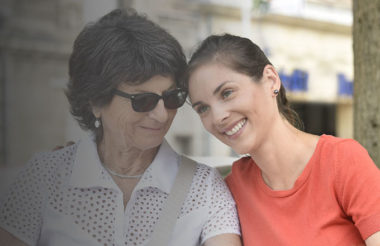
Through this module you will come to understand how we see, and what problems can arise in our visual development. You become more aware […]

This is the fourth modules covering the Strengths-based approach: Practice Framework (Department of Health and Social Care 2019). This Module looks at Theories (T) […]

This is the final of 5 modules covering the Strengths-based approach: Practice Framework (Department of Health and Social Care 2019). Module 5 looks at […]

Do you support autistic people or people living with learning disabilities? Are you concerned about the amount of medication they are being given? Are […]

This module covering the Knowledge and Co-Creation (Kc), from the KcVETS model for Strengths-based approach: Practice Framework (Department of Health and Social Care 2019). […]

This is the introductory module to strengths-based practice. The approach is applicable to any client group, to any intervention and can be applied by […]

This is the second module covering the Strengths-based approach: Practice Framework (Department of Health and Social Care 2019). This Module looks at Values and […]

This is the third module covering the Strengths-based approach: Practice Framework (Department of Health and Social Care 2019). This Module looks at Experiential learning […]

This module looks at what happens when someone has a heart attack and the importance of cardiopulmonary resuscitation (CPR). It also covers how to […]

This course is for qualified healthcare professionals and paediatric staff working with paediatric patients. Make sure that you have already completed the Level 1 […]

Being a healthcare professional often involves moving and handling during a normal work day. The type of task can range from moving different types […]

Being a healthcare professional often involves moving and handling during a normal work day. Following on From Level 1, Level 2 course is for […]

This module is for health and social care practitioners who may be at risk of sharps injuries. The learning identifies best working practices that […]

This course is for qualified healthcare professionals involved in the care and delivery of a newborn baby. Make sure that you have completed the […]

Helping people with their medicines takes thought and professional judgement. There are many regulations and guidelines from organisations each with different perspectives about the […]

This module looks at health and safety policy and the legal requirements for both employees and employers. It also covers how to implement health […]

The Health and Social Care Act (2008) Code of Practice states that health and social care providers must ‘provide and maintain a clean and […]
Childrens Social Care
Childrens Social Care
Instill staff with confidence to tackle social care situations and equip them with the practical tools to ensure each person is given the person-centered approach they deserve with this collection that goes beyond simple legislation and frameworks.

Welcome to this course on trauma awareness. You will find out about different types of trauma, recognise trauma responses in young people, and learn […]

Welcome to this e-learning module. This module outlines your key responsibilities as a social worker within child protection processes, and highlights the importance of […]

This module has been created in co-production between a social care professional and an expert by experience who has Down’s Syndrome. We have also […]

The National Skills Academy for Social Care Leadership Qualities Framework (LQF) sets out what good quality leadership should be for both individuals and organisations. […]

Supervision is a three-way partnership between the organisation you work for, the supervisor and those they supervise (supervisees). It involves all parties working together […]




Child sexual abuse is an especially complicated form of abuse because of its layers of deceit. This module looks at the signs and impacts […]

Self-harm is an extremely complex issue, both for those who self-harm and the professionals who support them. This module looks specifically at individuals who […]

Record keeping, and keeping good quality case notes, are central to the processes of assessment, decision-making, service planning and delivery.. Learning Outcomes for this […]

The Public Law Outline (PLO) is a statutory timescale put in place by the Children and Families Act (2014). This module will help you […]

Radicalisation is defined as the process by which someone comes to support terrorism and violent extremism and, in some cases, to participate in terrorist […]

Physical harm can take many forms. It is perhaps best defined as any action or deliberate physical force which results, or could result, in […]

Young people with additional needs, such as behavioural problems, substance misuse issues or learning needs, can sometimes display challenging behaviour. Positive Behaviour Support (or […]

In this module we explore the roles of the various organisations that make up Multi-Agency Forums within the child protection process. All local authorities […]

Neglect is not always easy to identify by professionals. This module aims to help professionals identify the signs, indicators, symptoms and risk factors associated […]

Within social care settings, life story work is a term used to describe a biographical approach that offers children and young people an opportunity […]

This module will introduce you to various leadership styles, including democratic and transactional. You will also learn about a number of different leadership theories. […]

Forced marriage is a form of honour based violence. It occurs when a marriage takes place without the free consent of the people getting […]

Female genital mutilation (FGM) has many names. It is often called female circumcision or ‘cutting’. Whatever name it goes under, the practice refers to […]

This course looks at the signs and symptoms of emotional abuse as well as how agencies can work together to identify it. A series […]
Care Certificates
Care Certificates
Mapped to the Skills for Care Framework, this collection addresses 15 areas of development, the importance of working in ways agreed by your employer, the relationships encountered by social care workers and the importance of working in partnership with others.

This eLearning module on Learning Disabilities and Autism is developed in line with Care Certificate Standard 16. Whether you are new to care or […]

Everyone who has been in contact with social care services and has met a social care practitioner will have case records held about the […]

There are many things which can help a social care practitioner develop their skills and knowledge to do their job better. This course looks […]

The Health and Social Care Act (2008) Code of Practice states that health and social care providers must ‘provide and maintain a clean and […]

As a social care worker, you have a duty of care towards the people you support. This means that you have a duty to […]

When supporting individuals, it is important to work in a way that promotes person-centred values; everyone has the right to live the way they […]

As a social care worker, you will communicate with people as you go about your job – you will communicate with your colleagues, your […]

Dignified care has a significant effect upon the service user’s well-being and experience; the right to being treated with dignity is a fundamental part […]

Nutrition is the intake of food, considered in relation to the body’s dietary needs. Good nutrition includes an adequate, well balanced diet combined with […]

This course looks at a range of issues including psychosis, depression, anxiety, dementia and learning disabilities and how you can support individuals. Social care […]

Practising equality and inclusion helps to ensure that people are not discriminated against. Equality involves treating people fairly and making sure that they have […]

As someone who works in social care, you will work with people to help them with their daily lives. Often these people are vulnerable, […]
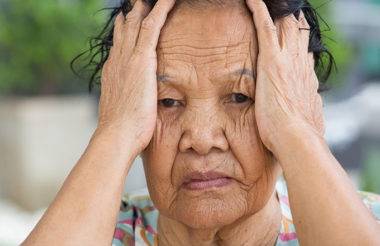
Safeguarding adults means protecting a person’s right to live in safety, free from abuse and neglect. It involves protecting vulnerable adults from abuse or […]

Child protection and safety is everyone’s responsibility, and anyone with a concern about a child’s welfare should refer their concern to Children’s Social Care. […]

As a social care practitioner, it is important to have an awareness of the symptoms of a heart attack and to understand the basics […]

It is important to understand the agreed ways of working that relate to health and safety in your place of work. These will be […]

Continuing our commitment of Care Certificate, we’ve created Oral Health. People with learning disabilities, cognitive impairment and other disabilities may have similar experiences of […]
Adult Social Care
Adult Social Care
This collections aims to cover the required training for those involved specifically in Adult Social Care. It has been developed with highly experienced SMEs and maps to Skills for care and relevant National Frameworks.

In this module on communication in adult care the learner will learn how to: Enhance their communication skills Use augmentative communication methods effectively Overcome […]
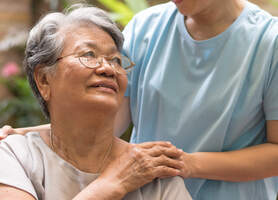
Welcome to this e-learning course about promoting and sustaining dignity and respect in the workplace. Topics covered include promoting independence, privacy and confidentiality, and […]

This module has been created in co-production between a social care professional and an expert by experience who has Down’s Syndrome. We have also […]

Since 2019, Adult Social Care workers have been attending court more and more. This lesson is designed to support those who need to attend […]

The National Skills Academy for Social Care Leadership Qualities Framework (LQF) sets out what good quality leadership should be for both individuals and organisations. […]
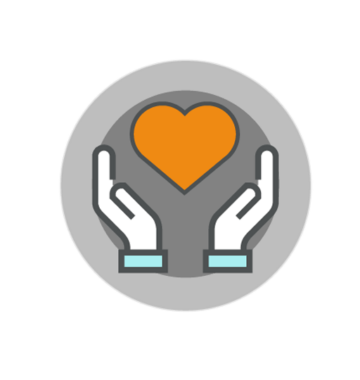
Care and support planning is a holistic, person-centred process for people with long-term conditions who need personal care and support. It enables the individual to identify […]


In this module about the Mental Capacity Act 2005 and Deprivation of Liberty Safeguards (DoLS), we take a look at the function and application […]
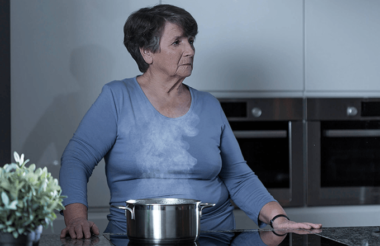
This module explores the factors that contribute to causing a stroke, the different types of strokes, the strategies which can help prevent them occurring, […]

This module will help learners to understand the skills and behaviours that are essential to be an effective supervisee and how to get the […]




This module is designed to enable a practitioner to follow the correct process to provide care and support for service users. It covers what […]

Self-harm is an extremely complex issue, both for those who self-harm and the professionals who support them. This module looks specifically at individuals who […]

Self-neglect is complex and varied and is often misunderstood. This module looks at the three main types of self-neglect, who is at risk, how […]

This module explores the ethos of reablement, who’s involved and its benefits. It will also help the learner understand how individuals are assessed and […]

This module on recording skills looks at the importance of keeping records and how to record information correctly in the social care setting. It […]

Radicalisation is defined as the process by which individuals come to support terrorism and violent extremism and, in some cases, to participate in terrorist […]

The Care Quality Commission (CQC) updated the inspection framework for health and social care in 2017 to align service inspections. Learning Outcomes for this […]

Around 180,000 patients develop a pressure ulcer in hospital each year. This module looks at the eight principles of pressure ulcer management as well […]
